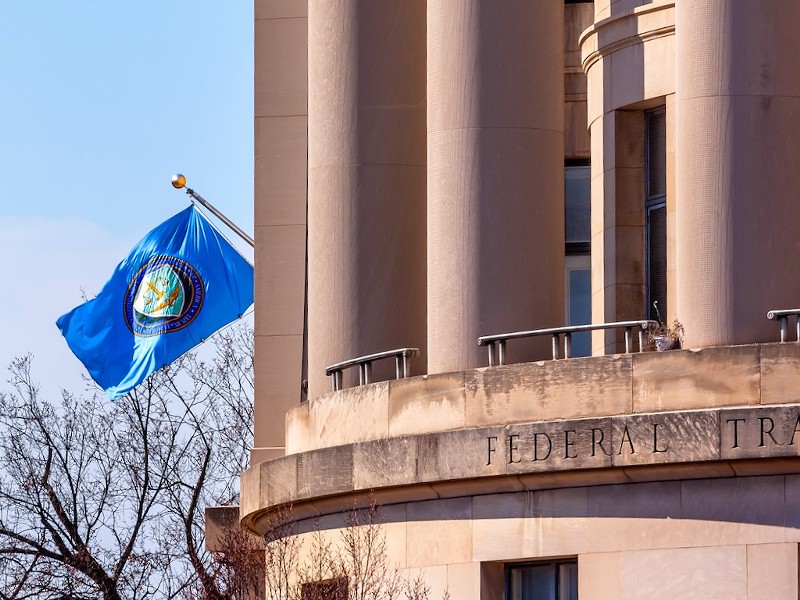So Jindal did what squeezed contractors often do: He decided to screw his workers.
Jindal directed one of his physical therapists to send a text message to Sheri Yarbray, the owner of a competing staffing agency in Flower Mound. The message disclosed the new, lower rate that Jindal planned to pay his therapists. Yarbray responded: “Yes I agree[.] I’ll do it with u.” Jindal then contacted four other DFW therapist staffing agencies requesting that they lower their rates the same amount.
Laura Padin, a senior staff attorney at the National Employment Law Project, called this a “blatant example” of wage fixing, which particularly threatens gig workers — independent contractors, like many of these therapists — who are vulnerable to collusion by the large firms that typically employ them.
The Federal Trade Commission investigated, and confirmed that Jindal and Yarbray had indeed broken the law. But, in a move that seemed to rile nearly everyone, from legal scholars and unions to one of the agency's own commissioners, the agency declined to levy any punishment. The settlement, which prohibits the companies from conducting similar behavior in the future, was finalized on Oct. 31.
“It’s a complete slap on the wrist,” said Sandeep Vaheesan, legal director at the Open Markets Institute, calling the settlement an appalling result for such an egregious case. “The only thing the FTC did is tell the companies not to break the law again, but they're already under an obligation not to break the law.”"This is a case that could have been referred to the DOJ for criminal prosecution." — Sandeep Vaheesan
tweet this
The Supreme Court has called collusion the "supreme evil" of antitrust violations. But during the course of its investigation, the FTC claims it failed to uncover evidence that the collusion resulted in actual harm for the therapists. Despite the illegal agreement to lower rates, the investigation “did not yield evidence that any reductions in pay rates were the result of unlawful conduct,” the FTC wrote, although it acknowledged that this may have been due to the fact that the FTC began investigating Jindal before he had much time to profit off his scheme.
Three of the five FTC commissioners voted in favor of the final consent order, which dictated the terms of the settlement. One commissioner, Rohit Chopra, dissented. In a scathing statement published alongside the FTC’s announcement, Chopra wrote, “When an investigation uncovers clear evidence of wrongdoing with no major dispute of fact or law, Commissioners should avoid entering into weak, no-consequences settlements that fail to hold a bad actor accountable or provide meaningful deterrence in the marketplace.”
One of commissioners who supported the order, Rebecca Kelly Slaughter, wrote that the FTC's limited resources were better spent going after bigger fish. She also noted that “the FTC’s enforcement authority is limited to the civil realm” and urged the DOJ to conduct its own investigation. But she and the other commissioners did not specify whether they had referred the case for criminal prosecution, which they have the power to do.
Both Slaughter and Chopra are Democrats. The other three commissioners are Republicans.
Furthermore, the settlement negotiated by the FTC failed to require the defendants to admit wrongdoing, which would have opened them up to further litigation.
“The FTC should have obtained an admission of liability and some monetary penalties because they had a great deal of leverage here," Vaheesan said. "This is a case that could have been referred to the DOJ for criminal prosecution."
In a 2016 memo, the FTC and the DOJ issued a memo promising to “proceed criminally against naked wagefixing,” a promise reaffirmed in 2017 by Andrew Finch, the leader of the DOJ’s antitrust division.
When the FTC outlined its intentions in 2018 not to aggressively pursue penalties in this case, Chopra issued a plea for public comment, indicating that the case could have wider implications as antitrust regulators begin to deal with the consequences of “our country’s growing ‘gig economy.’”
More than 100 people responded. One commenter was Sanjukta Paul, a law professor at Wayne State University. She said that monetary penalties are necessary in a case like this to change the “decision calculus for these middlemen businesses” and make wage fixing less attractive. Generally, such schemes are difficult to identify, making this a rare opportunity to penalize perpetrators.
But she’s encouraged by the public statements being made by the FTC’s Democratic commissioners, which she said could mark a change in the agency’s antitrust enforcement strategy.
“There's kind of been this bipartisan consensus that overall antitrust law doesn’t do much,” she said, and credited Chopra for leading the charge to further use antitrust law to protect workers.
The FTC has shown minimal support for gig workers in the past. After Seattle's law allowing Uber drivers to unionize was challenged in court, the FTC filed a brief in support of the ride-sharing company, whose drivers, like many of the therapists in this case, are classified as independent contractors and therefore are not protected by much of United States labor law.
“I think that antitrust law can be leveraged to make this a slightly less terrible place for American workers,” Paul added.












